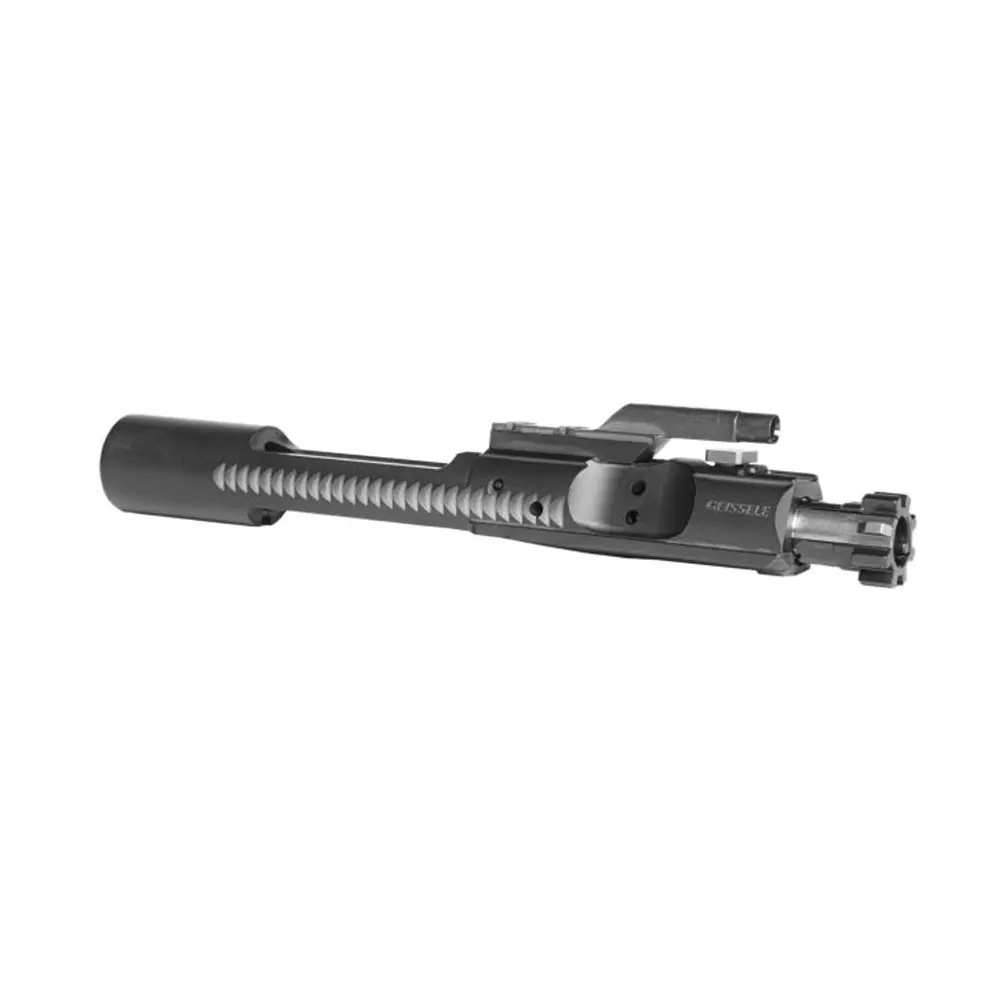Description
The Reliability Enhanced Bolt Carrier Group is a 5.56mm full-mass, full-auto rated M16/M4 bolt carrier group manufactured in Geissele’s state-of-the-art manufacturing facility in North Wales, PA. The carrier features a properly torqued and staked, Chrome Lined, Nano coated, gas key. The cam pin is machined from an advanced tool steel also used to produce medical instrumentation known as H13, it is then coated with Nanoweapon (Chrome-Nitride) for maximum corrosion and wear resistance. The extended upper rails on the carrier also provide much greater stability and dramatically increase feeding reliability. The Carrier is coated with Nanoweapon for maximum corrosion and wear resistance.
The Geissele Stressproof Bolt is made from Carpenter 158, however this is not your typical material spec’d by the US Government. Since Geissele wanted to take it to the next level, our engineers worked directly with the Carpenter Steel metallurgists in Reading PA, to produce a special type of material known as Carpenter 158+. This material is cleaner with less impurities, ultimately making it stronger and more consistent. We did not stop there, we decided to forge the bolt. Using the same process used to produce upper and lower receivers, a forged bolt manipulates the grain structure of the metal and yields a bolt capable of 5 times the life of a mil-spec bolt. Each bolt is then rigorously inspected, high pressure tested, mag particle inspected and coated with Nanoweapon for maximum corrosion and wear resistance.
Nanoweapon is a family of coatings similar to DSL (Durable Solid Lubricant) that was developed by Picatinny Arsenal (US ARMY ARDEC), and is only available exclusively from Geissele Automatics. Our engineers worked for over 3 years with the research and development company that worked with Picatinny to develop the coating in order to fine tune it into what it is today, making it the pinnacle of coatings for firearm components. No other coating on the market can provide the same level of corrosion, wear, and abrasion resistance as Nanoweapon. The coating is applied at low temperatures so it does not affect the metallurgy of the part, and has a surface hardness equivalent of 82HRC. At that hardness, it is harder than sand, easily rejecting carbon and making cleaning a breeze, on top of allowing the firearm to operate normally with less lubrication.
